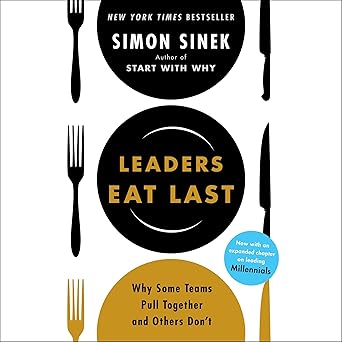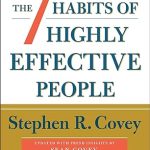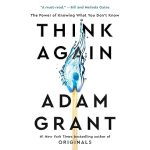Leaders Eat Last by Simon Sinek: Why This Book Will Change How You Lead
I recently finished reading Leaders Eat Last: Why Some Teams Pull Together and Others Don’t by Simon Sinek, and I must say, it left quite an impression on me. In this review, I’ll share key takeaways, my personal impressions, and how this book can inspire you to become a more effective leader.
A Deep Dive into Leadership
Simon Sinek’s Leaders Eat Last delves into the heart of what makes great leaders truly exceptional. According to Sinek, real leaders prioritize the well-being of their team members, fostering a culture of trust, empathy, and cooperation. The book’s central theme revolves around the idea that leaders who are willing to “eat last” – putting the needs of others before their own – create environments that inspire commitment, loyalty, and productivity.
One of the most compelling elements of Sinek’s work is his ability to back up his ideas with scientific research. He draws on biology and psychology to explain why people respond positively to certain leadership behaviors. Concepts like oxytocin (the “love hormone”) and cortisol (the “stress hormone”) are used to demonstrate how empathetic leadership affects our biological responses, creating a supportive environment where people feel safe and motivated.
Key Takeaways from Leaders Eat Last
- Leaders Create Safety: Sinek argues that the key role of a leader is to create a “Circle of Safety” for their team. When team members feel protected from external threats, they are more likely to cooperate and innovate.
- The Importance of Empathy: Great leadership is built on empathy. Sinek emphasizes that understanding and caring for team members’ needs helps build trust and strengthen relationships, leading to greater engagement and performance.
- Biology and Leadership: The book discusses how our biological systems, such as dopamine, serotonin, and oxytocin, influence our feelings and behaviors. Effective leaders leverage this knowledge to create a culture of recognition, belonging, and shared purpose.
- Putting Others First: The title itself is a powerful message. True leaders “eat last” – meaning they put their team’s needs above their own. This concept is drawn from military traditions where leaders ensure their troops are fed before themselves, symbolizing servant leadership.
Personal Impressions
One of the standout features of Leaders Eat Last is Sinek’s storytelling ability. He uses powerful anecdotes from companies like Next Jump and the military to illustrate his points, making complex leadership concepts more relatable and easier to grasp. The narrative is engaging, and the examples are inspiring, showcasing how leaders who care about their people create thriving environments.
Another aspect I particularly appreciated was Sinek’s focus on empathy and vulnerability. He doesn’t limit leadership to the workplace but extends it to our personal lives. Sinek’s message is clear: whether in professional or personal settings, leadership is about serving others, communicating effectively, and being open to vulnerability.
However, I did find that some of Sinek’s arguments could be a bit overgeneralized. His distinction between “leaders” and “managers” sometimes felt too black-and-white, as leadership styles can be fluid and context-dependent. Not all organizations operate under the same dynamics, and what works in one setting may not necessarily apply universally.
Conclusion: A Must-Read for Aspiring Leaders
Overall, Leaders Eat Last is a thought-provoking exploration of what it takes to lead effectively. Simon Sinek presents a compelling argument for why putting others first is the foundation of great leadership. The book’s blend of scientific evidence, practical insights, and relatable storytelling makes it a valuable resource for anyone looking to improve their leadership skills.
Whether you’re an experienced leader, a manager looking to foster a more cohesive team, or simply someone interested in personal growth, this book has something to offer. By embracing the principles of empathy, trust, and servant leadership, you can transform not only your team but also your personal relationships and overall sense of fulfillment.
Get Your Copy Today
If you’re ready to change the way you lead and create a culture of trust and cooperation, Leaders Eat Last is an essential read. Grab your copy today and start your journey toward transformative leadership.


